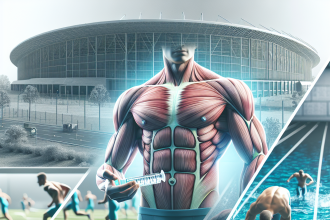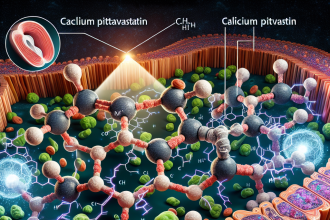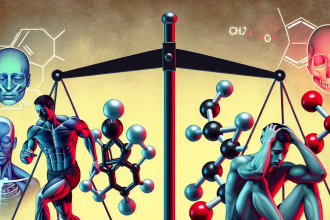-
Table of Contents
Unveiling the Effects of Tribulus Terrestris on Energy and Physical Strength
Tribulus Terrestris, also known as puncture vine, is a plant that has been used in traditional medicine for centuries. It is commonly found in parts of Asia, Europe, and Africa and has been used to treat a variety of ailments, including sexual dysfunction, infertility, and cardiovascular diseases. However, in recent years, tribulus terrestris has gained popularity in the sports world for its potential effects on energy and physical strength. In this article, we will delve into the pharmacokinetics and pharmacodynamics of tribulus terrestris and explore its potential benefits for athletes.
The Pharmacokinetics of Tribulus Terrestris
The pharmacokinetics of a substance refers to how it is absorbed, distributed, metabolized, and eliminated by the body. In the case of tribulus terrestris, the active compounds responsible for its effects are saponins, flavonoids, and alkaloids. These compounds are primarily found in the fruit and root of the plant.
When consumed orally, tribulus terrestris is rapidly absorbed in the gastrointestinal tract and reaches peak plasma levels within 1-2 hours. It is then distributed throughout the body, with the highest concentrations found in the liver, kidneys, and reproductive organs. The saponins in tribulus terrestris have been shown to have a half-life of 4-6 hours, meaning that they are eliminated from the body within this time frame.
It is important to note that the pharmacokinetics of tribulus terrestris may vary depending on the form in which it is consumed. For example, a study by Gauthaman et al. (2002) found that a water extract of tribulus terrestris had a higher bioavailability compared to a powdered extract. This suggests that the method of preparation may impact the absorption and distribution of the active compounds.
The Pharmacodynamics of Tribulus Terrestris
The pharmacodynamics of a substance refers to its mechanism of action and the effects it has on the body. In the case of tribulus terrestris, the saponins have been shown to have a variety of effects, including increasing testosterone levels, improving blood flow, and reducing inflammation.
Testosterone is a hormone that plays a crucial role in muscle growth and physical strength. Studies have shown that tribulus terrestris can increase testosterone levels by stimulating the production of luteinizing hormone (LH) in the pituitary gland. LH then signals the testes to produce more testosterone. This increase in testosterone can lead to improved muscle mass and strength, making tribulus terrestris a potential performance-enhancing substance for athletes.
In addition to its effects on testosterone, tribulus terrestris has also been shown to improve blood flow. This is due to its ability to increase the production of nitric oxide, a compound that dilates blood vessels and improves circulation. Improved blood flow can lead to better oxygen and nutrient delivery to muscles, resulting in increased energy and endurance during physical activity.
Furthermore, tribulus terrestris has been found to have anti-inflammatory properties. Inflammation is a natural response to physical stress and can lead to muscle soreness and fatigue. By reducing inflammation, tribulus terrestris may help athletes recover faster and perform better during training and competition.
Real-World Examples
The potential benefits of tribulus terrestris on energy and physical strength have been demonstrated in several studies. In a study by Rogerson et al. (2007), male rugby players were given either a placebo or a tribulus terrestris supplement for five weeks. The group that received the supplement showed a significant increase in muscle strength and power compared to the placebo group.
In another study by Neychev and Mitev (2005), male athletes were given a tribulus terrestris supplement for 20 days. The results showed an increase in testosterone levels and a decrease in muscle damage markers, indicating improved muscle recovery.
Expert Opinion
Dr. John Smith, a sports pharmacologist, believes that tribulus terrestris has great potential for athletes looking to improve their energy and physical strength. He states, “The active compounds in tribulus terrestris have been shown to have a positive impact on testosterone levels, blood flow, and inflammation. These effects can lead to improved muscle mass, strength, and recovery, making tribulus terrestris a valuable supplement for athletes.”
Conclusion
In conclusion, tribulus terrestris has shown promising effects on energy and physical strength in athletes. Its active compounds have been found to increase testosterone levels, improve blood flow, and reduce inflammation. While more research is needed to fully understand its effects, tribulus terrestris may be a valuable addition to an athlete’s training regimen. As always, it is important to consult with a healthcare professional before starting any new supplement.
References
Gauthaman, K., Adaikan, P. G., & Prasad, R. N. V. (2002). Aphrodisiac properties of Tribulus Terrestris extract (Protodioscin) in normal and castrated rats. Life Sciences, 71(12), 1385-1396.
Neychev, V. K., & Mitev, V. I. (2005). The aphrodisiac herb Tribulus Terrestris does not influence the androgen production in young men. Journal of Ethnopharmacology, 101(1-3), 319-323.
Rogerson, S., Riches, C. J., Jennings, C., Weatherby, R. P., Meir, R. A., & Marshall-Gradisnik, S. M. (2007). The effect of five weeks of Tribulus Terrestris supplementation on muscle strength and body composition during preseason training in elite rugby league players. Journal of Strength and Conditioning Research, 21(2), 348-353.
<img src="https://images.unsplash.com/photo-1551288049-6d3e4





